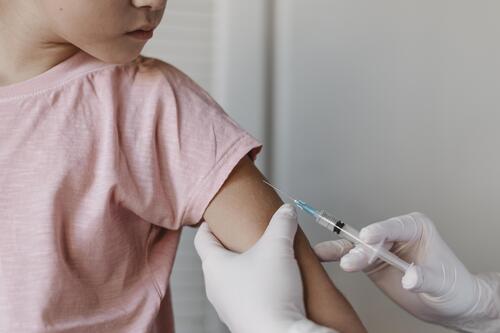When a Cough Turns Into a Whoop: Understanding Pertussis in Children
Your child has been coughing for weeks. At first, it seems like a regular cold—but then the cough gets stronger, sometimes leading to vomiting. Suddenly, after a violent coughing fit, you hear a high-pitched “whoop” as they gasp for air.
This sound is the hallmark of pertussis, or whooping cough—a highly contagious infection that spreads through coughing or sneezing. While vaccination has significantly reduced cases, babies are still at the greatest risk.

According to Dr. Jovitra, who treats many respiratory illnesses in children, whooping cough presents initially in the 1st week as a normal cold with runny nose, low grade fever and occasionally cough. Only in the 2nd week, Pertussis is often suspected when the cough becomes persistent and severe enough to cause facial congestion, post-tussive vomiting, and a characteristic “whoop” sound during inhalation after a coughing fit. “If a cough keeps worsening and interferes with breathing or feeding, parents should seek a Paediatric assessment immediately,” she advises.

How to Recognize Pertussis Symptoms
Parents often overlook the early warning signs. Watch out for:
- Persistent and worsening cough over a week or 2.
- Coughing fits that cause the child to vomit.
- A “whooping” sound when breathing in after coughing (imagine someone gasping for air through a straw)
- Lethargy and reduced feeding.
- Difficulty sleeping at night due to cough
Dr. Jovitra notes that infants may not always produce the typical ‘whoop,’ but they can experience breathing pauses (apnea), which may cause them to turn blue (cyanosis). These episodes are life threatening
Why Infants Are Most Vulnerable
Pertussis can be deadly for newborns because they depend on maternal antibodies for protection. All pregnant women in Malaysia are given the Tdap vaccination at 28-32weeks of gestation to provide the immunity to the infants until they receive the 3 primary pertussis vaccine doses
Vaccination Is the Best Protection

Pertussis can be prevented with the DTaP vaccine, which also protects against diphtheria and tetanus. The recommended vaccination schedule for children is given at:
- 2, 3, and 5 months
- Booster dose at 18 months
If your child has missed a dose, catch-up vaccination is must to prevent your child from getting pertussis and other vaccine preventable diseases.
“Delaying vaccines puts children at serious risk of severe illness,” emphasizes Dr. Jovitra.
When to Keep Your Child Home
Children diagnosed with pertussis should remain at home until cleared by a doctor to avoid spreading the infection. Dr Jovitra also recommends that schools maintain good ventilation, regular cleaning, and screen for sick children to prevent outbreaks.
Caring for a Sick Child at Home
- Keep your child well-hydrated and comfortable
- Give your child smaller meals during bouts of cough, as they may throw up easily after a bout of coughing.
- Watch for red flags such as difficulty breathing or prolonged exhaustion and refusal of feeds.
- Never hesitate to return for medical care if symptoms worsen while on home treatment.
Herd Immunity Protects the Community
Vaccination isn’t just about individual protection—it’s about safeguarding the entire community. When most people are immunized, the disease cannot spread easily, protecting newborns and vulnerable groups.

Final Advice for Parents
A lingering cough may seem harmless, but it could signal a serious illness. Timely vaccination saves lives and prevents complications. Don’t wait—protect your child today.
✅ At Bukit Tinggi Medical Centre (BTMC) Klang, we provide the complete range of childhood vaccinations, including DTaP, MMR, varicella (chickenpox), and rotavirus vaccines, ensuring your child is fully protected in a safe and comfortable setting.
Visit: Kids Vaccination Package
Promotion currently running till 31st December 2025


